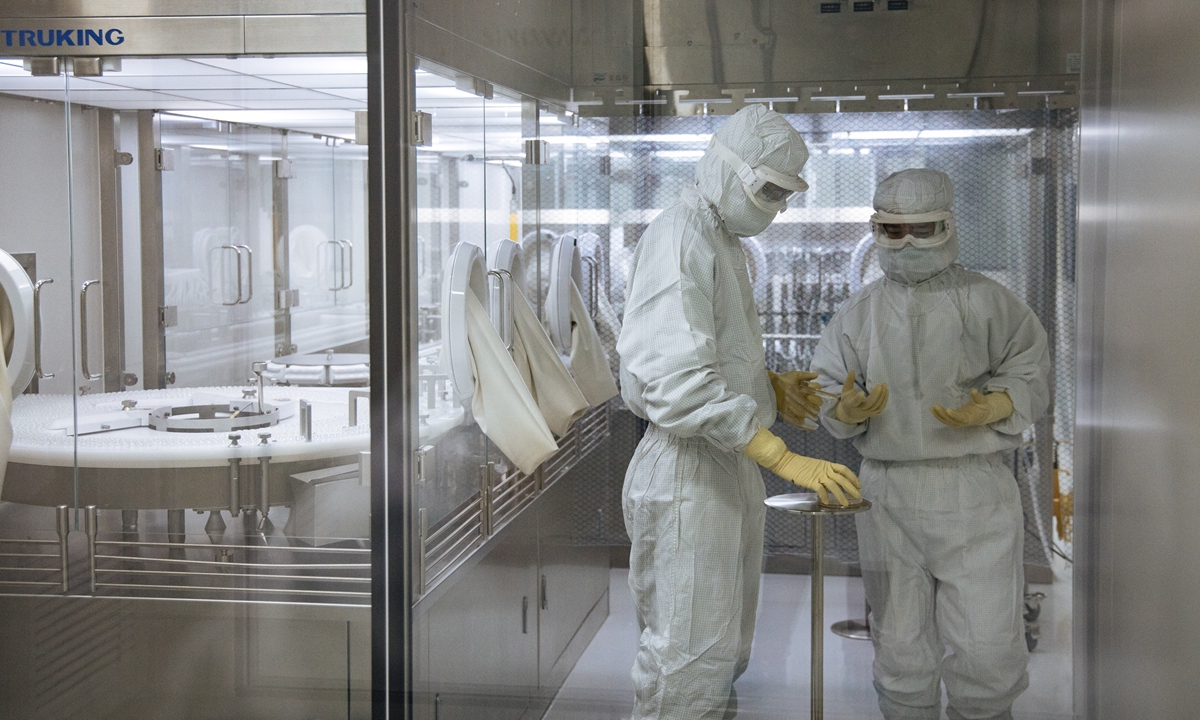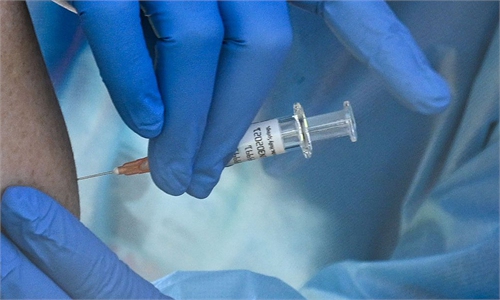
Quality inspectors on Sinovac vaccine production lines use digital technology platforms to monitor the quality and efficiency of vaccine packaging on Sunday. Photos: Li Hao/GT
China is calculating how many people working in high-risk professions will need to receive COVID-19 vaccines, health officials said Monday, as the travel rush of the Chinese New Year, also known as the world's largest annual human migration, draws close.
Previously, the Global Times learned that China is planning to vaccinate 50 million people in high-risk groups before Chinese New Year, which falls on February 12, to deter the spread of the virus during the upcoming travel peak.
Health officials on Monday did not confirm that 50 million people will be vaccinated before the 2021 Spring Festival, but said local governments are calculating the exact number of people who will be encouraged to get vaccines, most of whom will be cold-chain, medical and port workers.
China is ready for mass production of COVID-19 vaccines and will proceed with the official approval process as soon as possible after the release of phase-III interim clinical data, health officials said at a Monday press conference.
China's COVID-19 vaccine showed good indicators of effectiveness in phase I and II clinical trials. More than 60,000 people getting injections have gone to high-risk areas outside China, and no infection has been reported so far, Zheng Zhongwei, director of the Development Center for Medical Science and Technology of the National Health Commission (NHC), said at the conference.
Nearly 1 million people have been vaccinated voluntarily. China has carried out phase I, II and III clinical trials, which have demonstrated that Chinese vaccines are safe. "There are some minor adverse reactions, but no serious ones," Zheng said.
China has five COVID-19 vaccines entering phase III clinical trials. But some barriers slowed down the pace of China's phase III trials, such as the easing of epidemic in China, communication gaps overseas, and the inexperience of Chinese producers in global cooperation, but China always follows scientific standards, said health officials at the press conference on Monday.
China-developed vaccines can produce antibodies in two weeks. They need to cover around 70 percent of the population to reach herd immunity against the novel coronavirus, health officials said, appealing for the public to take the vaccines..
Health officials warned there might be some reactions such as fever, ache or fatigue after being vaccinated, but there is no need to worry.
Wu Zunyou, chief epidemiologist at the Chinese Center for Disease Control and Prevention, warned that the risks of epidemic spread during the New Year and Spring Festival holidays are rising.
Wu hinted that the risk of infection caused by the purchase or consumption of imported cold-chain food is very low as positive nucleic acid test result on cold-chain food doesn't imply there is infectivity.
Global Times



